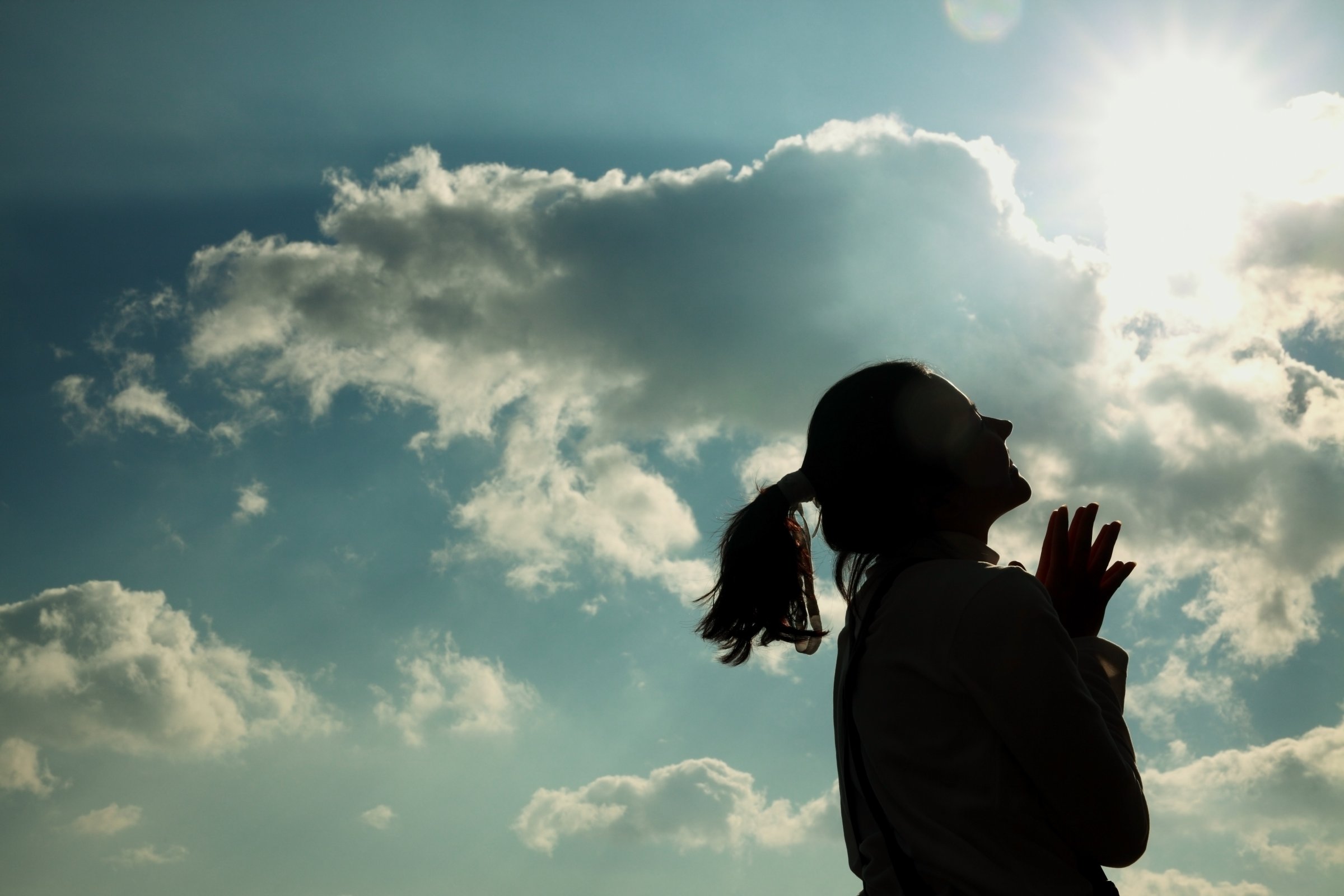
Highly religious people are very likely to believe that the Earth is sacred and that humans have a duty to protect it. Yet many of them—and particularly those in certain Christian denominations—do not think that climate change is a big problem or that humans are causing it.
That somewhat paradoxical finding comes from a national survey released on Nov. 17 by Pew Research Center that juxtaposes Americans’ thoughts on climate with their religious beliefs. Pew’s analysis of the survey results, which focuses mostly on Christian viewpoints, attempts to untangle why the country’s most religious are sometimes at odds with climate science.
Among the most devout Americans who pray daily, attend religious services at least weekly, and say religion is very important in their life, 61% are climate skeptics. They either believe that global warming is caused by natural patterns, or feel unconvinced by the scientific evidence of human impact. In contrast, 29% of the least devout who seldom or never pray nor attend services, and say religion isn’t important in their life, hold the same reservations. Affiliation makes a difference, too, as the below charts show. Non-Christian people are far more likely than Christians (particularly Evangelicals) to accept that humans cause climate change and that climate is a major issue.
Given the rates of climate skepticism and unconcern among Christian groups, it’s logical that they tend to also have lower rates of civic engagement to address climate change. In the past year, about half as many Christians (21%) donated money, attended a protest, contacted an elected official or volunteered in some way for the cause compared with non-Christian religious groups (41%), including Jewish, Muslim, Buddhist, and Hindu populations.
And yet, most religiously affiliated people—including a great majority of Christians—agree that God gave humans a duty to protect the planet, and that scripture has lessons about the environment. That may seem at odds with the high levels of climate skepticism, but the report points out that views on climate change are driven much more by politics than the pulpit—and that religious affiliation is highly indicative of political disposition.
“Highly religious Americans are more inclined than others to identify with or lean toward the Republican party, and Republicans tend to be much less likely than Democrats to believe that human activity (such as burning fossil fuels) is warming the Earth or to consider climate change a serious problem,” the report states. In addition, many religious Americans report concern over common Republican talking points about environmental regulations’ potential impact on individual freedoms, fewer jobs, and higher energy prices.
Politics may have more influence on Americans than religion because, the survey found, climate isn’t generally a hot topic within congregations. Just 6% of U.S. congregants say climate change is a significant subject of conversation among fellow parishioners. And only 8% of congregants say that the sermons they hear discuss climate change “a great deal or quite a bit.”
When it comes to personal spirituality, climate change also tends to take a back seat. Among survey respondents who pray at least monthly, about half said they’d prayed for the environment in the past year. That’s less than every other prayer topic in the survey—healing for someone who is sick (93%), peace on Earth (83%), the poor (76%), and their family’s financial well-being (73%)—except for a political party or an elected official (43%).
Still, religion does play a role. Different dogmas concerning stewardship, dominionism, “end times,” and other spiritual beliefs about humanity’s purpose on Earth may shape opinions about whether or not climate change is a serious matter. For instance, nearly 70% of Christians believe that God gave humans the right to use the Earth, including the plants and animals, for humanity’s benefit, compared with 41% of religious non-Christians.
Among Christians, there is a wide range of beliefs concerning apocalyptic events. While most Americans (58%) don’t believe that the world is facing its final days, 76% of historically Black and 63% of Evangelical congregations say that the end is nigh. “As the theory goes,” the report notes, “people who believe humanity is living in its last days may be less concerned about the dangers of climate change than those who do not think the world is soon coming to an end.”
More Must-Reads from TIME
- Where Trump 2.0 Will Differ From 1.0
- How Elon Musk Became a Kingmaker
- The Power—And Limits—of Peer Support
- The 100 Must-Read Books of 2024
- Column: If Optimism Feels Ridiculous Now, Try Hope
- The Future of Climate Action Is Trade Policy
- FX’s Say Nothing Is the Must-Watch Political Thriller of 2024
- Merle Bombardieri Is Helping People Make the Baby Decision
Contact us at [email protected]